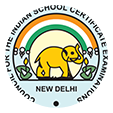Home / Facilities / Laboratories
GreenDot International School’s laboratories provide students with hands-on experiences, integrating modern technology and traditional methods to foster curiosity and a deeper understanding of scientific concepts. Our facilities cover a range of scientific disciplines, enabling students to explore science in meaningful and engaging ways.
These laboratories help students connect theoretical learning with practical applications, enhancing both understanding and retention.

Meet Us On Social:





